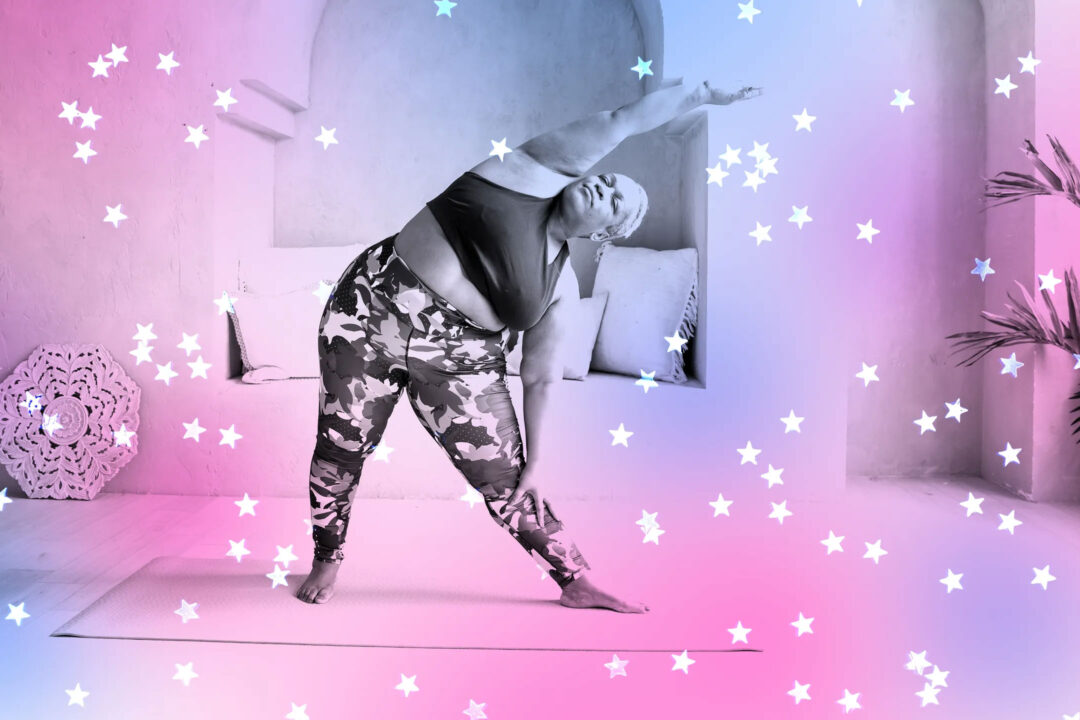While orgasms don’t define good sex, they are pretty damn nice. However, our bodies, minds, and relationships are complicated, meaning orgasms aren’t always easy to come by (pun intended). From dating anxiety to medication to too little masturbation, here are nine possible culprits if you’re having a hard time orgasming — plus advice on how to deal.
1. You expect vaginal sex alone to do it for you.
One more time, for the cheap seats in the back: Only about 25 percent of people with vaginas come from penetration alone. If you’re not one of them, that doesn’t mean anything is wrong with you or your body. As licensed psychotherapist Amanda Luterman has told Allure, ability to come from vaginal sex has to do with the distance between the vaginal opening and the clitoris: The closer your clit is to this opening, the more vaginal sex will stimulate your clit.
The sensation of a penis or a dildo sliding into your vagina can be undeniably delightful. But most need people need that sensation paired with more direct clitoral stimulation in order to come. Try holding a vibrator against your clit as your partner penetrates you, or put your or your partner’s hands to good use.
2. Your partner is pressuring you.
Interest in your partner’s pleasure should be non-optional. But when you’re having sex with someone and they keep asking if you’ve come yet or if you’re close, it can throw your orgasm off track. As somatic psychologist and certified sex therapist Holly Richmond points out, “Being asked to perform is not sexy.” If your partner is a little too invested in your orgasm, it’s time to talk. Tell them you appreciate how much they care, but that you’re feeling pressure and it’s killing the mood for you.
It’s possible that they’re judging themselves as a partner based on whether or not you climax, and they may be seeking a little reassurance that they’re making you feel good. If they are, say so; if you’re looking to switch it up, this is your opportunity to tell them it would be so hot if they tried this or that thing next time you hop in bed.
3. Your antidepressants are messing with your sex drive.
As someone who continues to struggle with depression, I can’t emphasize enough how important it is to seek treatment and take medication if you and your care provider decide that’s what’s right for you. Antidepressants can be lifesavers, and I mean that literally.
However, certain medications do indeed affect your ability to come. SSRIs such as Zoloft, Lexapro, and Prozac can raise the threshold of how much stimulation you need to orgasm. According to New York City sex therapist Stephen Snyder, author of Love Worth Making: How to Have Ridiculously Great Sex in a Long Lasting Relationship. “For some women, that just means you’re going to need a good vibrator,” says New York City sex therapist Stephen Snyder, author of Love Worth Making: How to Have Ridiculously Great Sex in a Long Lasting Relationship. “For others, it might mean your threshold is so high that no matter what you do, you’re just not going to be able to get there.”
If your current medication is putting a dramatic damper on your sex life, you have options, so talk to your doctor. Non-SSRI antidepressants such as Wellbutrin are available, while newer medications like Viibryd or Trintellix may come with fewer sexual side effects than other drugs, Snyder says. I’m currently having excellent luck with Fetzima. I don’t feel complete and utter hopelessness yet can also come my face off (a wonderful way to live).
4. Your birth control is curbing your libido.
Hormonal birth control can also do a number on your ability to climax, according to Los Angeles-based OB/GYN Yvonne Bohn. That’s because it can decrease testosterone levels, which in turn can mean a lower libido and fewer orgasms. If you’re on the pill and the sexual side effect are giving you grief, ask your OB/GYN about switching to a pill with a lower dose of estrogen or changing methods altogether.
5. You’re living with anxiety or depression.
“Depression and anxiety are based on imbalances between neurotransmitters,” OB/GYN Jessica Shepherd tells Allure. “When your dopamine is too high or too low, that can interfere with the sexual response, and also your levels of libido and ability to have sexual intimacy.” If you feel you may have depression or an anxiety disorder, please go see a doctor. Your life is allowed to be fun.
6. You’re not having sex for long enough.
A good quickie can be exciting (and sometimes necessary: If you’re getting it on in public, for example, it’s not exactly the time for prolonged foreplay.) That said, a few thrusts of a penis inside of a vagina is not a reliable recipe for mutual orgasm. Shepherd stresses the importance of foreplay, which can include oral, deep kissing, genital stimulation, sex toys, and more. Foreplay provides both stimulation and anticipation, making the main event, however you define that, even more explosive.
7. You’re recovering from sexual trauma.
Someone non-consensually went down on me as part of a sexual assault four years ago, and I’ve only been able to come from oral sex one time since then. Post-traumatic stress disorder is common among survivors of sexual trauma; so are anxiety and orgasm-killing flashbacks, whether or not the survivor in question develops clinical PTSD. Shepherd says sexual trauma can also cause hypertonicity, or increased and uncomfortable muscle tension that can interfere with orgasm. If you’re recovering from sexual trauma, I encourage you to find a therapist to work with, because life — including your sex life — can get better.
8. You’re experiencing body insecurity.
Here’s the thing about humans: They want to have sex with people they’re attracted to. Richmond says it’s important to remember your partner chooses to have sex with you because they’re turned on by your body. (I feel confident your partner loves your personality, as well.) One way to tackle insecurity is to focus on what your body can do — for example, the enormous pleasure it can give and receive — rather than what it looks like.
9. You’re shying away from masturbation.
Our partners don’t always know what sort of stimulation gets us off, and it’s especially hard for them to know when we don’t know ourselves. If you’re not sure what type of touch you enjoy most, set aside some time and use your hands, a sex toy, or even your bathtub faucet to explore your body at a leisurely pace. Once you start to discover how to make yourself feel good, you can demonstrate your techniques to your partner.

